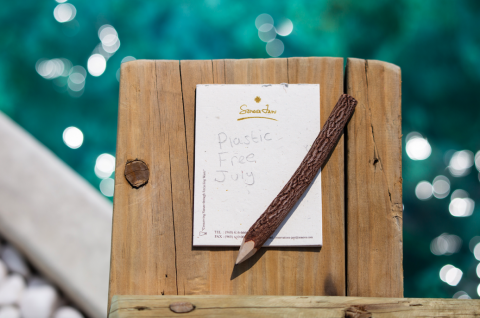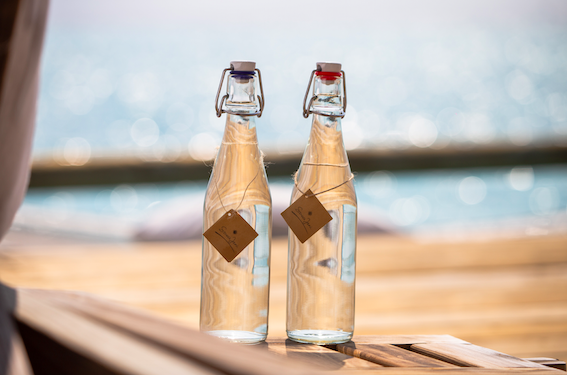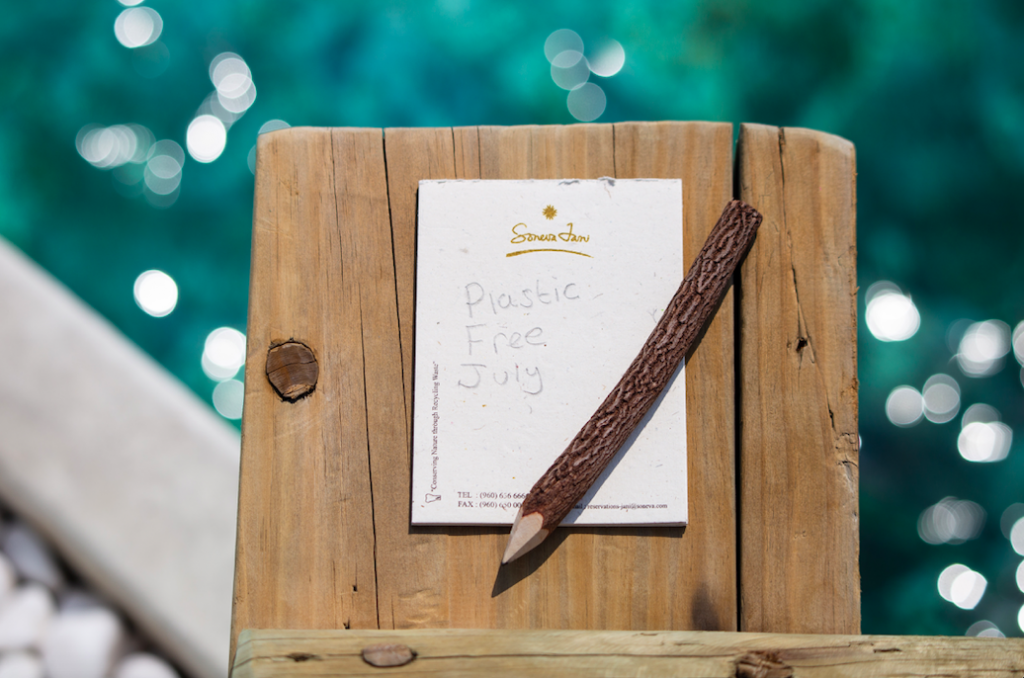
Soneva, the world-leading luxury resort operator, has been at the forefront of the sustainable luxury hospitality movement for over two decades. From banning single-use plastic at its resorts, becoming carbon neutral, to waste management and recycling initiatives, Soneva is always trying to find new ways to reduce its impact on the environment and help local communities in the process. Plastic Free July is a global movement that encourages millions of people to be a part of the solution to plastic pollution. Plastic Free July is a challenge for people to refrain from using as much single-use plastic as possible.
When it comes to plastic, Soneva banned the use of plastic straws at its resorts in 1998. All Soneva resorts only use paper straws. Soneva has been testing out locally sourced bamboo straws at Soneva Kiri in Thailand as an alternative to its standard paper ones.

In 2008 Soneva banned the import of branded bottled water, making it one of the first resorts in the world to do so. Each resort filters, mineralises and bottles its own Soneva Drinking Water in reusable glass bottles, averting the production of 1,500,000 plastic bottles. Soneva raises around USD 90,000 every year from the Soneva Drinking Water proceeds and has funded over 500 clean water projects in more than 50 countries via charities such as Water Charity and Thirst Aid – enabling over 750,000 people around the world to have access to clean and safe water. This year Soneva expects to raise more than USD 90,000. Soneva Drinking Water has so far averted the production of 1,500,000 plastic bottles. More recently, the Soneva Drinking Water initiative was rolled out on one of Soneva Fushi’s neighbouring islands, Maalhos, reducing the island’s dependence on unreliable rainwater and increasing the local population’s access to pure, filtered water in reusable glass bottles.
At each of its three resorts, Soneva has its own Waste-to-Wealth facility, which generates around USD 340,000 in annual revenues. Soneva Fushi recycles 90 per cent of its waste through an innovative waste management strategy. Food left over from the resort’s restaurants is composted to make nutritious soil for the island’s vegetable and herb gardens, all of which are organic and provide much of the produce used at Soneva Fushi. Styrofoam packing is used to make lightweight construction blocks.

For an island nation like the Maldives, which relies on its natural scenery for tourism and with fish as the main food staple, waste is a massive problem. The trickiest things to recycle are toothpaste tubes and squeezable sunblock tubes, and this is why Soneva started the Soneva Maker Programme at Soneva Fushi. This programme sees Soneva join the grass-roots Precious Plastic global initiative to become the first company in the Maldives to recycle plastic into new products, using open-source machines made from locally available, low cost materials.
The Soneva Maker Programme is part of Soneva’s plan to encourage both guests and Hosts to participate in recycling initiatives, to educate younger guests about how things are made and to emphasise the ‘Waste-to-Wealth’ concept. In the future this programme will be extended so that all Soneva resorts can recycle plastic collected from neighbouring islands and communities.
For more information about Soneva, visit www.soneva.com
Categories
- Log in to post comments